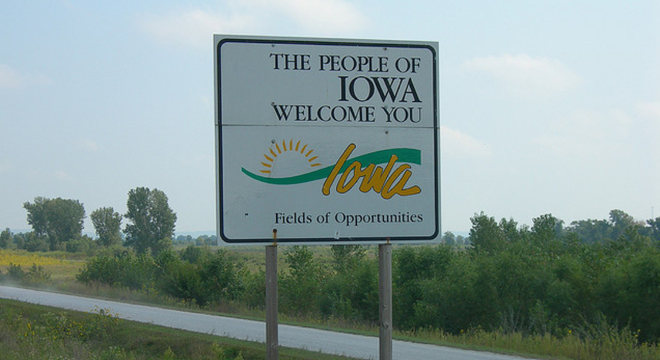Ten days ago, TPM asked the question “If Newt slips in Iowa, what happens next?”
Well, Newt slipped big time in Iowa. So what happens next?
“People have this idea that it’s chaos out here,” veteran Iowa pollster Ann Selzer told TPM in an interview. “It’s normal. This is the way it works.”
If the 2012 Republican primary race has been anything it’s been hard to make sense of, with flavor of the month candidates popping up and crashing down, challenging a weak frontrunner bent on capturing the GOP establishment at a time when the grassroots seem to run the show. There have been moments when it seemed that no one but former Mass. Gov. Mitt Romney could possibly get the nod, and moments when it seemed like anyone but Mitt Romney could get the nomination.
But while that’s been a source of confusion on the national level for those used to the days of the Republican coronation process, Selzer said it’s par for the course in Iowa. “We’re the first state. We have nothing else to guide us and people want to make a good choice,” she told TPM.
The polling picture in Iowa has followed the national one rather seamlessly. For an electorate known for its focus on retail politics, the polls have seen Republican voters succumb (at least in the short term) to the boom and bust candidates. But one way or another, folks on the ground in Iowa say it was always going to end up this way.
“The number of people firmly committed to a candidate is only 28 percent,” said Iowa State Professor of Political Science Jim McCormick, who just directed a poll of the state for ISU. “That’s come up a little bit…I don’t think it’ll really settle down until the night of Jan. 3rd. Iowans have been traditionally late deciders.”
And those Iowans are certainly taking their time. With the fall of the former House Speaker in the polling of likely Iowa caucus-goers, the race is truly a free for all, and when TPM asked pollsters who would be in two tiers of candidates, there wasn’t much agreement. Pollers seem fairly confident saying that both Rep. Ron Paul (R-TX), and Romney could win the state. But there were plenty of arguments for others.
Public Policy Polling (D)’s Tom Jensen said he believes Gingrich’s precipitous drop has made it clear he won’t be in the winner’s circle January 3rd. Selzer said that she’s been surprised at the strength of Bachmann’s efforts after the last few weeks and could be poised to make a move. ISU’s McCormick said that it’s hard to turn on the TV without seeing Perry ads in the state, and that Perry may be the the recipient of defecting Gingrich support. As for the top three, “[Romney’s] and Paul’s spots are pretty much guaranteed,” Jensen wrote in an email to TPM. “The suspense comes down to whether anyone out of the Santorum/Perry/Bachmann triumvirate can pull away from the others and really get some steam.”
But Selzer pointed out the last minute fluctuations are by design. “This is the time that the candidates are trying to make things move,” she told TPM. “I wouldn’t expect things to settle in — it’s not uncommon for things to shake up in the final four days,” referring to the fact that candidates are blanketing the state with campaign stops, holding events and doing interviews. McCormick echoed that sentiment: “The ground game has really been going with all these bus tours,” he told TPM. “A few weeks ago I would have said that retail politics have been overwhelmed by the nationalization of the campaign. But the retail side of things has really ramped up, and I think they’re moving back to that side.”
So in a sense, the unsettled state of the GOP race is mixing perfectly with the traditional schedule of the Iowa caucuses: with no true frontrunner, voters are literally evaluating where they’ll be a few weeks from now, and Republican candidates all find themselves with the room to jump.
“People want us to be all locked down,” Selzer told TPM. “That wouldn’t be fun.”









